-
 Bitcoin
Bitcoin $117600
2.11% -
 Ethereum
Ethereum $3907
6.13% -
 XRP
XRP $3.288
9.68% -
 Tether USDt
Tether USDt $1.000
-0.01% -
 BNB
BNB $784.8
2.00% -
 Solana
Solana $174.3
3.60% -
 USDC
USDC $0.9997
-0.03% -
 Dogecoin
Dogecoin $0.2220
8.04% -
 TRON
TRON $0.3379
0.01% -
 Cardano
Cardano $0.7829
5.46% -
 Stellar
Stellar $0.4348
8.84% -
 Hyperliquid
Hyperliquid $40.50
6.38% -
 Sui
Sui $3.757
7.22% -
 Chainlink
Chainlink $18.41
10.06% -
 Bitcoin Cash
Bitcoin Cash $581.6
1.91% -
 Hedera
Hedera $0.2586
5.37% -
 Avalanche
Avalanche $23.30
4.67% -
 Ethena USDe
Ethena USDe $1.001
0.01% -
 Litecoin
Litecoin $122.0
2.62% -
 UNUS SED LEO
UNUS SED LEO $8.972
-0.23% -
 Toncoin
Toncoin $3.338
1.14% -
 Shiba Inu
Shiba Inu $0.00001282
3.76% -
 Uniswap
Uniswap $10.38
6.88% -
 Polkadot
Polkadot $3.852
4.63% -
 Dai
Dai $1.000
0.02% -
 Bitget Token
Bitget Token $4.463
2.29% -
 Monero
Monero $263.6
-7.22% -
 Cronos
Cronos $0.1496
4.78% -
 Pepe
Pepe $0.00001106
4.91% -
 Aave
Aave $284.3
8.09%
Which countries have the most favorable blockchain policies for investment?
Global cryptocurrency investment thrives in nations with supportive blockchain policies, like Malta and Switzerland, but navigating varying tax laws and regulatory frameworks is crucial for informed decision-making.
Mar 10, 2025 at 06:00 pm
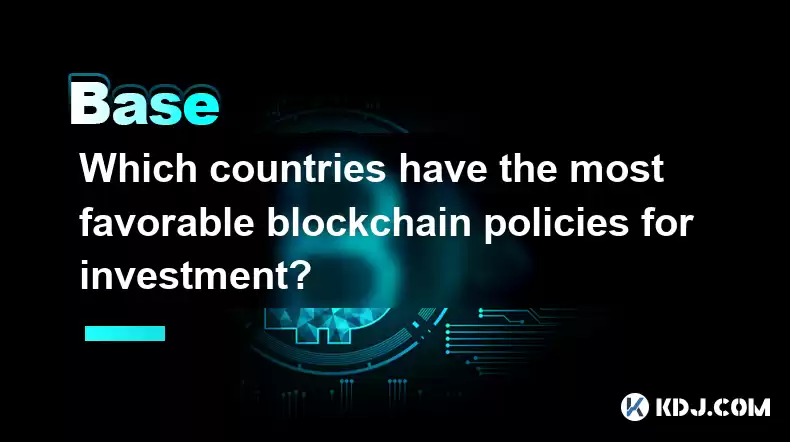
Key Points:
- Several countries are actively fostering blockchain technology and cryptocurrency investment through favorable regulatory environments.
- These policies vary widely, impacting factors like taxation, licensing, and legal frameworks surrounding digital assets.
- Understanding these differences is crucial for investors seeking to navigate the global cryptocurrency landscape.
- While some nations offer clear guidelines, others are still developing their regulatory approaches.
- Political and economic stability within a country also plays a significant role in investment attractiveness.
Which Countries Have the Most Favorable Blockchain Policies for Investment?
The cryptocurrency market is global, but not all countries welcome it with open arms. Navigating the varying regulatory landscapes is crucial for investors. Some jurisdictions offer more favorable conditions than others, attracting significant investment in blockchain technology and cryptocurrency businesses. Understanding these differences is key to making informed decisions.
Malta: Often touted as the "Blockchain Island," Malta has proactively embraced blockchain technology. Its regulatory framework, including the Malta Digital Innovation Authority (MDIA), provides a clear legal path for blockchain projects and cryptocurrency businesses to operate. This includes specific legislation addressing Distributed Ledger Technology (DLT) and virtual financial assets. This clarity attracts both startups and established companies.
Switzerland: Switzerland, particularly the Zug canton (known as "Crypto Valley"), has cultivated a supportive environment for blockchain and cryptocurrency companies. The Swiss Financial Market Supervisory Authority (FINMA) has issued guidelines for Initial Coin Offerings (ICOs) and other crypto-related activities, providing a degree of regulatory certainty. The country's tradition of financial innovation and neutrality further enhances its appeal.
Singapore: Singapore has adopted a pragmatic and measured approach to regulating cryptocurrencies. While it doesn't explicitly endorse cryptocurrencies as legal tender, the Monetary Authority of Singapore (MAS) has implemented frameworks for managing risks associated with digital assets and payment services. This balanced approach fosters innovation while maintaining regulatory oversight.
United Arab Emirates (UAE): The UAE, particularly Dubai and Abu Dhabi, are increasingly becoming hubs for blockchain and cryptocurrency activities. Various regulatory initiatives are underway to create a supportive ecosystem, attracting significant investment and fostering innovation in the sector. The focus is on developing a clear legal framework and promoting the adoption of blockchain technology across various sectors.
Portugal: Portugal offers a relatively tax-friendly environment for cryptocurrency investments, with capital gains from crypto transactions generally exempt from taxation. This favorable tax regime, coupled with a generally progressive approach to technological innovation, makes it attractive for crypto investors. However, it's important to stay updated on any potential changes in legislation.
Other Countries with Emerging Blockchain Policies:
Several other countries are actively developing their regulatory frameworks for blockchain and cryptocurrencies. These include:
- Estonia: Known for its e-residency program, Estonia is exploring ways to integrate blockchain technology into its government services and the wider economy.
- Germany: While regulation is still evolving, Germany has shown a willingness to adapt to the evolving landscape of cryptocurrencies.
- Gibraltar: Similar to Malta, Gibraltar has established a regulatory framework for Distributed Ledger Technology (DLT) businesses.
Factors to Consider Beyond Specific Policies:
While specific laws and regulations are vital, other factors influence the investment climate:
- Political and Economic Stability: A stable political and economic environment is crucial for long-term investment. Uncertainty can deter investors.
- Infrastructure: Reliable internet access and robust technological infrastructure are essential for blockchain businesses to thrive.
- Talent Pool: The availability of skilled professionals in blockchain technology and related fields is another important factor.
Navigating the Regulatory Landscape:
Investing in cryptocurrencies in any jurisdiction requires careful consideration of the legal and regulatory environment. It's advisable to:
- Conduct thorough research: Understand the specific laws and regulations of the country where you plan to invest.
- Seek professional advice: Consult with legal and financial professionals specializing in cryptocurrency and blockchain technology.
- Stay updated on regulatory changes: The regulatory landscape is constantly evolving, so staying informed is crucial.
Common Questions:
Q: Are there any countries that completely ban cryptocurrencies?
A: Yes, several countries have implemented outright bans on cryptocurrencies, or severely restrict their use. The regulatory landscape is constantly changing, so it’s important to research specific country regulations.
Q: Do favorable blockchain policies guarantee investment success?
A: No. Favorable policies reduce regulatory risk, but market volatility and technological changes still impact investment outcomes. Due diligence and risk management are crucial.
Q: How do tax implications vary across countries regarding cryptocurrency investments?
A: Tax laws vary significantly. Some countries offer tax exemptions or favorable treatment, while others impose taxes on capital gains, trading profits, or even the holding of cryptocurrencies. Professional tax advice is highly recommended.
Q: What are the risks of investing in cryptocurrencies in countries with developing regulatory frameworks?
A: Investing in countries with nascent regulatory frameworks carries increased risk due to the uncertainty surrounding legal interpretation and enforcement. The lack of clarity can lead to unforeseen challenges.
Q: How can I stay updated on changes in cryptocurrency regulations globally?
A: Stay informed by following reputable news sources, legal publications, and government websites dedicated to financial regulations. Subscribe to newsletters from organizations specializing in cryptocurrency law and regulation.
Disclaimer:info@kdj.com
The information provided is not trading advice. kdj.com does not assume any responsibility for any investments made based on the information provided in this article. Cryptocurrencies are highly volatile and it is highly recommended that you invest with caution after thorough research!
If you believe that the content used on this website infringes your copyright, please contact us immediately (info@kdj.com) and we will delete it promptly.
- EigenLayer, Restaking, and Ethereum: Navigating the Hype and the Hazards
- 2025-08-08 06:30:12
- Super Bowl 59: Jon Batiste to Jazz Up the National Anthem
- 2025-08-08 06:30:12
- Cold Wallet Crypto in 2025: The Future is Now, Ya'll
- 2025-08-08 05:10:13
- MAGACOIN, SOL, and ADA: A Tale of Shifting Tides in Crypto
- 2025-08-08 05:10:13
- SHIB Price, PEPE, and the Memecoin Supercycle: Who Will Reign Supreme?
- 2025-08-08 05:50:12
- Pudgy Penguins Price Prediction: Google Trends & Breakout Signals
- 2025-08-08 05:50:12
Related knowledge
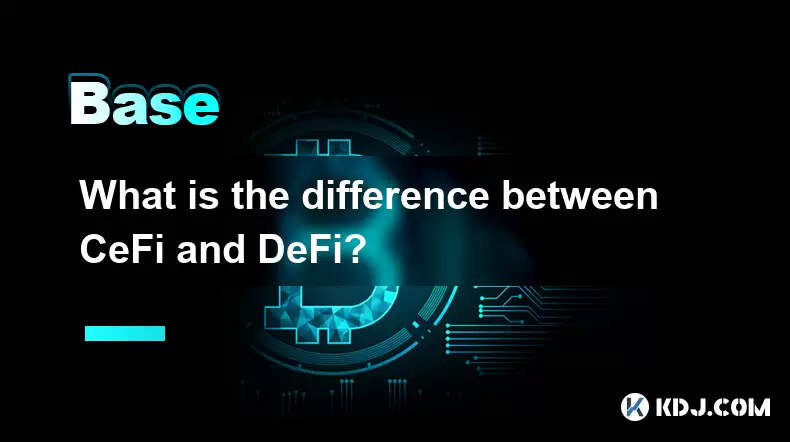
What is the difference between CeFi and DeFi?
Jul 22,2025 at 12:28am
Understanding CeFi and DeFiIn the world of cryptocurrency, CeFi (Centralized Finance) and DeFi (Decentralized Finance) represent two distinct financia...

How to qualify for potential crypto airdrops?
Jul 23,2025 at 06:49am
Understanding What Crypto Airdrops AreCrypto airdrops refer to the distribution of free tokens or coins to a large number of wallet addresses, often u...
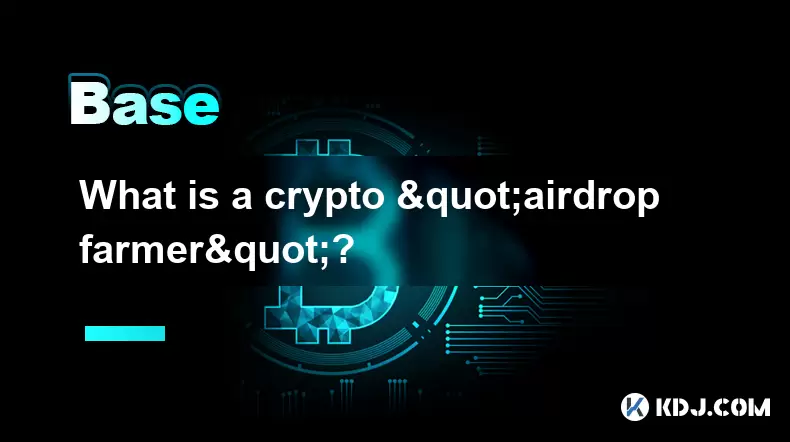
What is a crypto "airdrop farmer"?
Jul 24,2025 at 10:22pm
Understanding the Role of a Crypto 'Airdrop Farmer'A crypto 'airdrop farmer' refers to an individual who actively participates in cryptocurrency airdr...
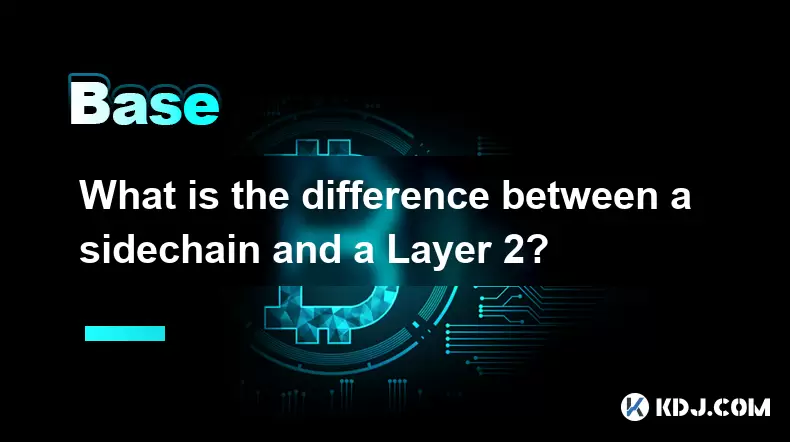
What is the difference between a sidechain and a Layer 2?
Jul 20,2025 at 11:35pm
Understanding the Concept of SidechainsA sidechain is a separate blockchain that runs parallel to the main blockchain, typically the mainnet of a cryp...
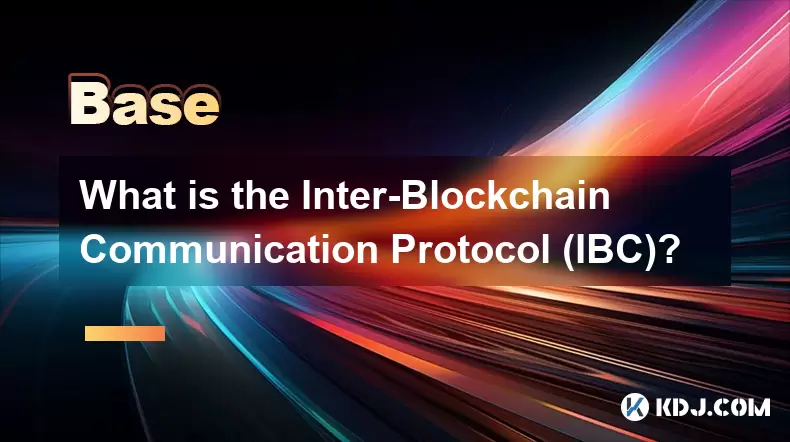
What is the Inter-Blockchain Communication Protocol (IBC)?
Jul 19,2025 at 10:43am
Understanding the Inter-Blockchain Communication Protocol (IBC)The Inter-Blockchain Communication Protocol (IBC) is a cross-chain communication protoc...
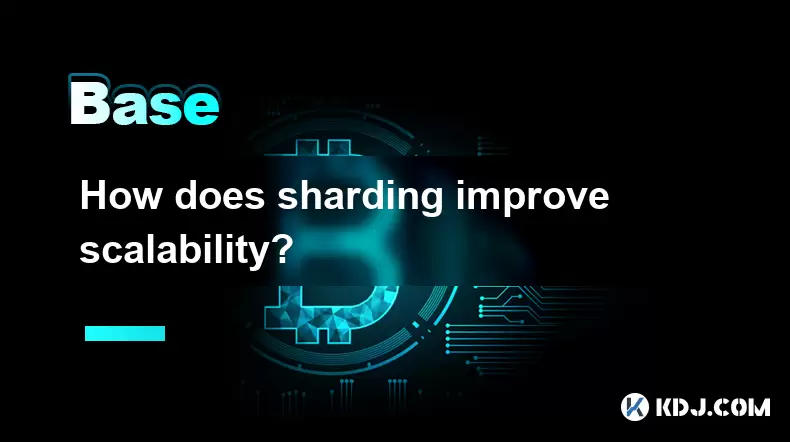
How does sharding improve scalability?
Jul 20,2025 at 01:21am
Understanding Sharding in BlockchainSharding is a database partitioning technique that is increasingly being adopted in blockchain technology to enhan...

What is the difference between CeFi and DeFi?
Jul 22,2025 at 12:28am
Understanding CeFi and DeFiIn the world of cryptocurrency, CeFi (Centralized Finance) and DeFi (Decentralized Finance) represent two distinct financia...

How to qualify for potential crypto airdrops?
Jul 23,2025 at 06:49am
Understanding What Crypto Airdrops AreCrypto airdrops refer to the distribution of free tokens or coins to a large number of wallet addresses, often u...

What is a crypto "airdrop farmer"?
Jul 24,2025 at 10:22pm
Understanding the Role of a Crypto 'Airdrop Farmer'A crypto 'airdrop farmer' refers to an individual who actively participates in cryptocurrency airdr...

What is the difference between a sidechain and a Layer 2?
Jul 20,2025 at 11:35pm
Understanding the Concept of SidechainsA sidechain is a separate blockchain that runs parallel to the main blockchain, typically the mainnet of a cryp...

What is the Inter-Blockchain Communication Protocol (IBC)?
Jul 19,2025 at 10:43am
Understanding the Inter-Blockchain Communication Protocol (IBC)The Inter-Blockchain Communication Protocol (IBC) is a cross-chain communication protoc...

How does sharding improve scalability?
Jul 20,2025 at 01:21am
Understanding Sharding in BlockchainSharding is a database partitioning technique that is increasingly being adopted in blockchain technology to enhan...
See all articles

























































































